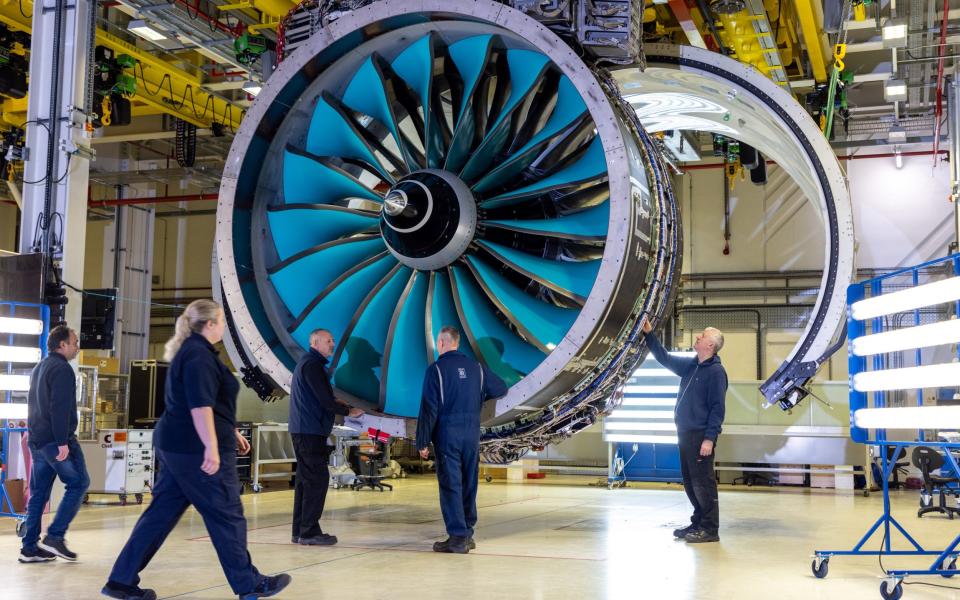Buying high-quality companies with clear competitive advantages has paid off for this trust

While the FTSE All-Share index reached a new record high this year, its performance over recent years has been hugely disappointing. Indeed, over the past decade its total returns are just 6.3pc on an annualised basis.
This is below the current rate of inflation and less than two percentage points greater than the return available on a fixed-rate savings account. With the index enjoying a buoyant year so far despite widespread economic doom and gloom, investors may question whether to stick with stock market investments.
In Questor’s view, equities currently offer far superior long-term return prospects than any other mainstream asset class. Company valuations remain attractive despite recent gains, which means new record highs are very achievable. Meanwhile, the economy’s prospects are expected to improve to prompt better operating conditions for businesses as high inflation and interest rate rises gradually abate.
Of course, some stock market investments have been hugely profitable over recent years. For example, Law Debenture has produced an annualised total return in excess of 10pc over the past decade. The investment trust, which aims to achieve a higher total return than the FTSE All-Share index over the long run, has benefited from a bottom-up approach that seeks to purchase high-quality companies with clear competitive advantages when they trade at attractive prices.
It is willing to adopt a contrarian approach, when necessary, which enables it to purchase sound companies that are temporarily unpopular ahead of their likely recovery. For instance, it has recently benefited from the upswing in Rolls-Royce’s share price. The aerospace and defence company has risen by 57pc this year, having been decidedly unpopular among investors, and is now one of the trust’s largest holdings.
Other positions include FTSE 100 stocks such as Shell, BP, HSBC, Barclays and Rio Tinto. In addition, its professional services firm accounts for 21pc of assets. It offers services including pension administration and trusteeship, and has contributed around a third of dividends paid to the trust’s investors over the past decade.
During that time, Law Debenture’s dividends per share have risen at an annualised rate of 7.9pc versus a 2.6pc annual inflation rate. And while the trust currently yields a rather modest 3.7pc, its dividend growth rate is likely to return to being ahead of inflation as the pace of price rises moderates and the economy’s outlook improves.
Shareholder payouts have been extremely consistent, with the company having grown or maintained dividends per share for the past 44 years in succession. Therefore, while its headline dividend yield may be upstaged by other trusts at the present time, it nevertheless offers notable income appeal for long-term investors.
Although 84pc of the trust’s holdings are UK-listed, they are largely internationally focused companies that are dependent on the prospects for the world economy. While rising interest rates are causing significant uncertainty among investors and downbeat headlines, the global economy’s growth rate should improve.
The IMF, for example, expects world GDP growth to rise from a rate of 2.8pc this year to 3pc next year. And with the end of rampant inflation and an era of relatively dovish monetary policy on the horizon, it would be unsurprising for investor sentiment towards the stock market to further improve as any remnants of fear and uncertainty ultimately give way to greed and excess.
With gearing of 13pc, Law Debenture’s returns are likely to be magnified during a period of economic and stock market growth. And while it trades at a 2pc premium to net asset value at a time when other trusts offer discounts, its record of outperformance suggests it is worthy of its price tag.
Since Questor first recommended that readers purchase the trust in July 2017, it has posted a 42pc capital return versus a 6pc capital gain for the FTSE 100 index. Its performance has not been smooth or without difficulty, with events such as the pandemic, Russia’s invasion of Ukraine and rampant inflation causing significant challenges. Yet it has produced an excellent return that this column believes will continue.
Its short-term performance is highly dependent on unpredictable events and irrational investor emotions. But with a long track record of outperformance and a sound strategy that uses temporary stock market mispricings to its advantage, its long-term prospects remain highly appealing.
Questor says: buy
Ticker: LWDB
Share price at close: 825p
Read the latest Questor column on telegraph.co.uk every Sunday, Tuesday, Wednesday, Thursday and Friday from 6am.
Read Questor’s rules of investment before you follow our tips

 Yahoo Finance
Yahoo Finance 